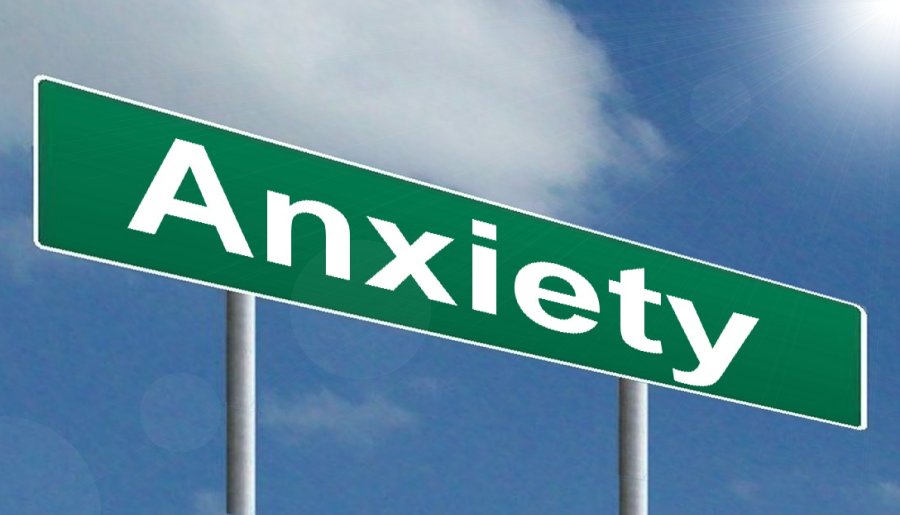How does anxiety affect the mind and body?
Anxiety is a physiological condition that has many components that go beyond the emotional. People with anxiety experience behavioral, somatic, and cognitive symptoms due to the condition. Emotionally, a person with anxiety will persistently worry. Everyday concerns seem so big that they can’t stop thinking about them. Behaviorally anxiety affects an individual and that they may need constant reassurance that nothing terrible is going to happen. The mental health condition affects us across-the-board through many different aspects of the human condition.
Cognitive symptoms of anxiety
Anxiety affects our cognition and makes it difficult to focus on things. Having poor concentration could be due to anxious feelings. Another way in which anxiety affects a person cognitively is that they will engage in persistent rumination. They won’t be able to stop thinking or worrying.
Somatic signs of anxiety
Somatic symptoms of anxiety can get include sweaty palms, shaking, trembling, racing heart, or feeling like you’re experiencing a heart attack. Some people have numbness or tingling in their bodies. An individual with anxiety may experience nausea or stomach upset. They may feel like they have the chills. Anxiety can feel so debilitating to your physical state that you may feel as if you’re dying. It is a very unpleasant sensation in the body and it can make you feel as if you cannot function. Each person’s body experiences anxiety differently. If one person may have panic attacks where they can’t breathe well, another person may get tension headaches. It’s dependent on the individual and what their perceptions are of anxiety.
Emotional symptoms of anxiety
The emotional symptoms of anxiety or extensive, depending on the type of anxiety you have. People who have panic disorder and panic attacks will experience dread or an Eminem feeling of doom that comes out of the blue. Some people things I do feel hopeless or helpless to their anxious thoughts and feelings. Other people who have anxiety may want to avoid situations and people because their fear is so severe that they can’t handle coping with it. Avoidance is a common symptom of anxiety. If you don’t want to do something, it might be because you’re afraid of the consequences of the action.
Fight flight or freeze
You have heard of the phrase fight, flight, or freeze. Some people who have severe anxiety want to push back or fight against their feelings. Others run away or avoid it, or freeze in place. People respond differently emotionally to their anxiety.
Behavioral systems of anxiety
There are different behavioral symptoms of anxiety. Some people experience rapid mood swings. They may feel fine one moment and then, at the next moment, feel a sense of dread. Rapid fluctuation of moods can indicate that somebody is experiencing severe anxiety or panic. Other people may check out or dissociate when they feel anxious. They can’t handle being in their body because it’s too painful, so they detach and check out. Some people experience Irritability, restlessness, or agitation. For some people, the symptoms of anxiety are so severe that they turned a substance-abuse to self medicate. It can prevent people from engaging in daily life activities that they once enjoyed. They may be fearful of leaving the house because their anxiety is so severe. Thankfully there is hope.
Therapy can help all aspects of anxiety
Whether it’s the cognitive, behavioral, somatic, or emotional aspects of anxiety, therapy can help treat all of these. You could search for “therapy near me,” or seek out an online counselor. Online therapy is an excellent place to discuss your anxiety and gain the coping strategies that you need to start managing it. Anxiety is a state that is based on fear. Sometimes people are afraid to talk about anxiety, ironically, because they’re scared of what will happen. But when you push back against that fear and start speaking about your anxiety candidly, you can begin the healing process. Anxiety can feel distressing, but it doesn’t have to rule your life. Therapy can be a great place to discuss these behavioral concerns and start getting the help and support that you need.
Marie Miguel Biography
Marie Miguel has been a writing and research expert for nearly a decade, covering a variety of health- related topics. Currently, she is contributing to the expansion and growth of a free online mental health resource with BetterHelp.com. With an interest and dedication to addressing stigmas associated with mental health, she continues to specifically target subjects related to anxiety and depression.
Doris’s passion for writing started to take shape in college where she was editor-in-chief of the college newspaper. Even though she ended up working in IT for more than 7 years, she’s now back to what he always enjoyed doing. With a true passion for technology, Doris mostly covers tech-related topics.

